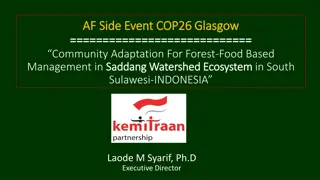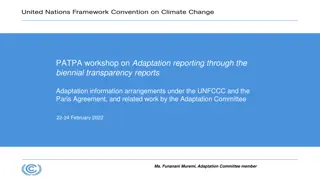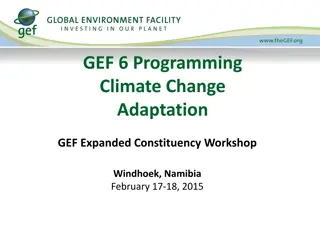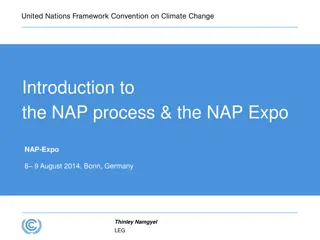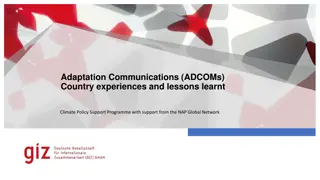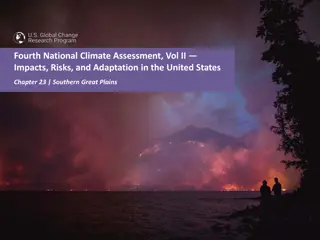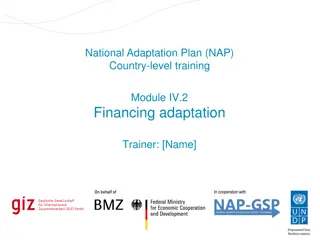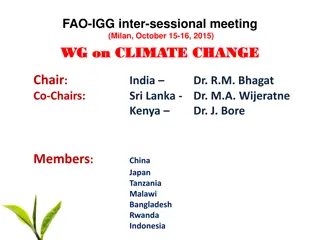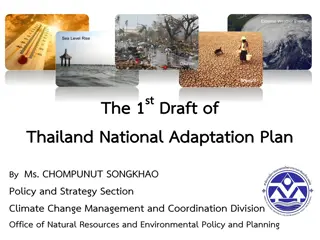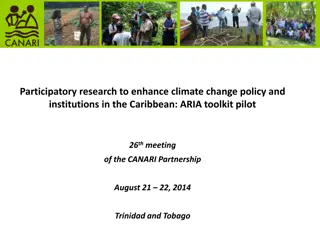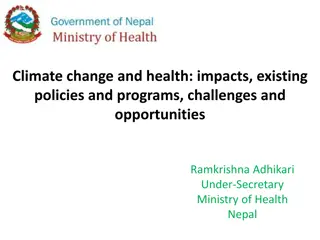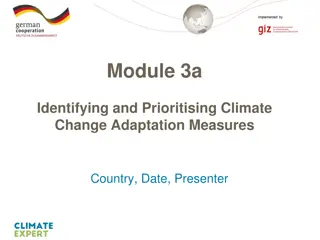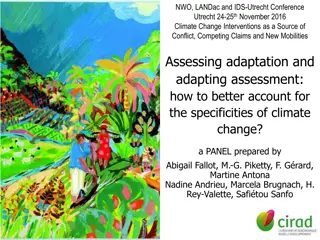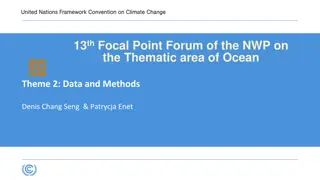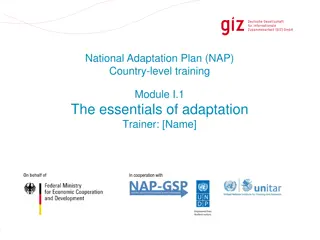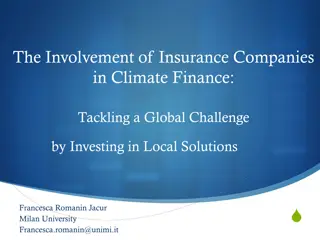Transformative Strategies for Climate Change Adaptation in Food Systems
Evolving theories of transformational change emphasize the importance of transformative actions in addressing climate change impacts on agri-food systems. The IPCC AR6 report highlights the need for system-wide shifts to mitigate GHG emissions and enhance resilience in the face of escalating climate risks. By moving beyond incremental adaptations, transformative and transformational approaches can lead to rapid and fundamental changes, improving food security and livelihoods globally.
Download Presentation

Please find below an Image/Link to download the presentation.
The content on the website is provided AS IS for your information and personal use only. It may not be sold, licensed, or shared on other websites without obtaining consent from the author. Download presentation by click this link. If you encounter any issues during the download, it is possible that the publisher has removed the file from their server.
E N D
Presentation Transcript
Re-cap of SCALAs conceptual framing of systems-level assessments Krystal Crumpler, Climate Change and Natural Resources Specialist SCALA Programme, FAO Samuel Tumwesigye, Agriculture and Climate Change Adaptation Specialist SCALA Programme, UNDP Internal Webinar and Exchange on Systems-level Assessments - Part 2 28-29 June 2022
Theory Context IPCC AR6 Transformation and systems- level change Outline SCALA country approaches SCALA conceptual framing Systems-level assessments Applied systems-level assessments on the ground
Context: IPCC AR6 02. 03. 01. Current adaptation, limits and maldaptation Agri-food systems and GHG emissions Climate change impacts The majority of climate risk management and adaptation currently being planned and implemented is incremental. Agri-food systems contribute up to one-third of global GHG emissions. Climate-related extremes have affected the productivity of all agricultural and fishery sectors, with negative consequences for food security and livelihoods Soft limits can be overcome by addressing financial, governance, institutional and policy constraints The impacts are particularly acute and severe for people living in sub-Saharan Africa, Asia, Small Island States, Central and South America and the Arctic, and small-scale food producers globally Ecosystem-based approaches, agroecology and other Nature-based Solutions in agriculture and fisheries have the potential to strengthen resilience to climate change with multiple co- benefits, including mitigation co-benefits Hard limts have been reached in some ecosystems and cannot be reversed Indigenous Peoples and disadvantaged groups are especially adversely affected by maladaptation, which often deprives them of food and livelihoods and reinforces and entrenches existing inequalities Climate change will increasingly add significant pressure and regionally different impacts on all components of food systems, undermining all dimensions of food security IPCC AR6 Report: Climate Change 2022 Impacts, Adaptation & Vulnerability
Context: IPCC AR6 AR6 highlights the role of transformation in meeting the Paris Agreement, the SDG and other policy goals. Transformative actions are urgently needed to shift systems because of the required urgency and scale of emissions, as well as the adverse impacts of escalating climate risks, poverty and vulnerability IPCC AR6 Report: Climate Change 2022 Impacts, Adaptation & Vulnerability
Evolving theories of transformational and transformative change Transformative change: A system-wide change that requires more than technological change through consideration of social and economic factors that, with technology, can bring about rapid change at scale (IPCC, 2022). Transformational adaptation: Adaptation that changes the fundamental attributes of a social- ecological system in anticipation of climate change and its impacts (IPCC, 2019). Incremental adaptation: Adaptation that maintains the essence and integrity of a system or process at a given scale (IPCC, 2014) Example: implementation of systemic changes towards agroecological production practices Example: adjustments to cropping systems through new varieties, or using more efficient irrigation technologies
SCALAs approach to systems-level assessments Research: 7 dimensions of transformative change identified based on literature review and case studies Systems thinking Climate rationale Conceptual framework: Tools/methods developed to support conceptualization and planning for a systems-level assessment Innovation Technical planning and country consultations: Internal webinars and bilateral calls with SCALA countries to discuss country approaches, needs and priorities for designing a systems- level assessment Private Sector Engagement Gender and social inclusion On-the-ground application: Systems-level assessments will be carried out in SCALA countries in 2022/2023 to generate evidence for the implementation of transformative climate action in the land use and agriculture sectors Sustainable development Whole of government 7 dimensions of transformative climate action
www.fao.org/in-action/scala www.adaptation-undp.org/scala






